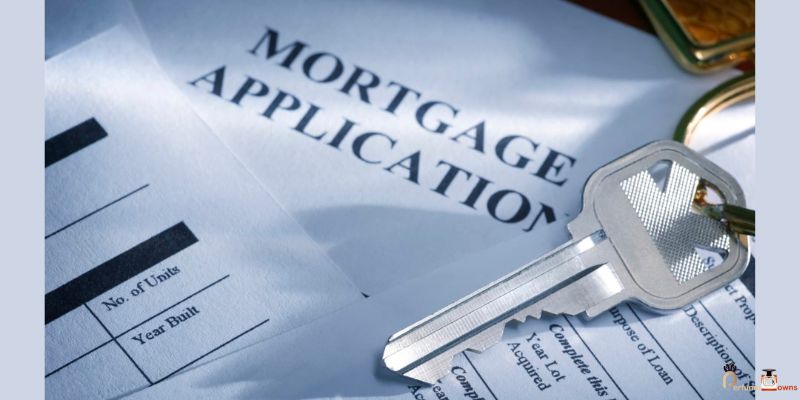Tips and Guides
Better Mortgage Rates: You Should Know
Do you intend to refinance your better mortgage rates or purchase a home? Your mortgage rate is among the most important things to think about. It’s crucial to comprehend what affects mortgage rates and how to acquire a better rate because a lower mortgage rate might save you thousands of dollars over the course of your loan. The status of the economy, the borrower’s credit score, the loan-to-value ratio, the length of the loan, and the type of mortgage are just a few of the variables that affect mortgage rates.
perfumetowns.com will arm you with the information and resources you need to make knowledgeable decisions regarding your mortgage and perhaps save you money, whether you’re a first-time home buyer or an experienced homeowner.
Factors that Affect Mortgage Rates

Numerous variables, such as economic indicators, credit scores, loan-to-value ratios, property types, and loan terms all have an impact on mortgage rates. Better mortgage rates can be significantly impacted by economic variables like inflation, GDP growth, and unemployment rates. Rates typically increase in robust economies and decline in poor ones. Your mortgage rate is significantly influenced by your credit score as well. A lower credit score may result in a higher rate, whereas a higher credit score typically correlates to a lower rate.
Additionally, before applying, it’s crucial to know your credit score because lenders frequently require a minimum score for particular loan kinds. The amount of the loan in relation to the property’s appraised worth is known as the loan-to-value ratio (LTV). A higher LTV can result in a higher rate, as it represents a greater risk to the lender.
The type of property you’re buying or refinancing can also affect your mortgage rate. For example, investment properties typically have higher rates than primary residences.
Finally, the loan term can impact your rate. Generally, shorter loan terms (such as 15 years) have lower rates than longer terms (such as 30 years).
Ways to Get Better Mortgage Rates

Now that you understand some of the factors that affect mortgage rates, let’s discuss some strategies for getting a better rate.
Improving your credit score is one of the most effective ways to get a better rate. Start by checking your credit report for errors and taking steps to address any issues. Paying down debt, making on-time payments, and avoiding new credit inquiries can also improve your score over time.
Increasing your down payment can also help you secure a better rate. Lenders generally offer better rates to borrowers who have more equity in the property.
Shopping around for lenders is another strategy. Rates can vary significantly from lender to lender, so it’s important to compare multiple offers. Consider working with a mortgage broker, who can help you navigate the process and potentially find better rates.
Opting for a shorter loan term can also result in a better rate. While shorter terms mean higher monthly payments, they also result in less interest paid over the life of the loan.
Finally, choosing a fixed-rate mortgage can provide peace of mind and predictable payments, as opposed to adjustable-rate mortgages (ARMs) which can fluctuate over time.
Risks and Considerations

When it comes to finding better mortgage rates, there are several risks and considerations to keep in mind before making a decision. Here are some things to consider:
Firstly, beware of low initial rates. These rates can be tempting, but they may come with hidden fees or balloon payments that can cause problems later on. Be sure to carefully read and understand the terms of your loan before signing on.
Secondly, it’s important to understand the impact of interest rates on your monthly payment. Even a small increase in your rate can significantly affect your payment amount over time, so make sure you’re comfortable with the payment amount and budget accordingly.
Thirdly, be aware of prepayment penalties that some lenders may charge if you pay off your loan early. These fees can be significant and may negate any savings from a better interest rate. Make sure you understand the terms of your loan and any potential penalties before making a decision.
Finally, remember that finding better mortgage rates is just one piece of the puzzle. Consider other factors, such as loan terms, lender reputation, and overall affordability. Ultimately, it’s important to find a loan that meets your needs and financial goals.
In summary, finding better mortgage rates can save you money over the life of your loan, but it’s important to carefully consider the risks and potential drawbacks. By taking the time to research and compare your options, you can find a loan that works for you and your budget.
Conclusion
In conclusion, securing better mortgage rates is a wise financial decision that can potentially save you thousands of dollars over the life of your loan. By understanding the various factors that influence better mortgage rates, such as economic indicators, credit scores, loan-to-value ratios, and loan terms, you can take steps to increase your chances of getting a favorable rate.
Strategies for securing better rates include improving your credit score, increasing your down payment, shopping around for lenders, opting for shorter loan terms, and choosing fixed-rate mortgages. However, it’s important to be aware of the potential risks and drawbacks, such as low initial rates with hidden fees or prepayment penalties. By taking a well-informed and balanced approach and considering all the factors that impact your mortgage, you can make a sound decision that best meets your needs and financial goals.
